Have you ever wondered how your morning cup of coffee impacts your health and well-being? Caffeine, the active ingredient in coffee and many other beverages, is often praised for its invigorating effects. But did you know that it has several positive benefits beyond just waking you up? Let’s take a closer look at how caffeine can positively influence your health and daily life.
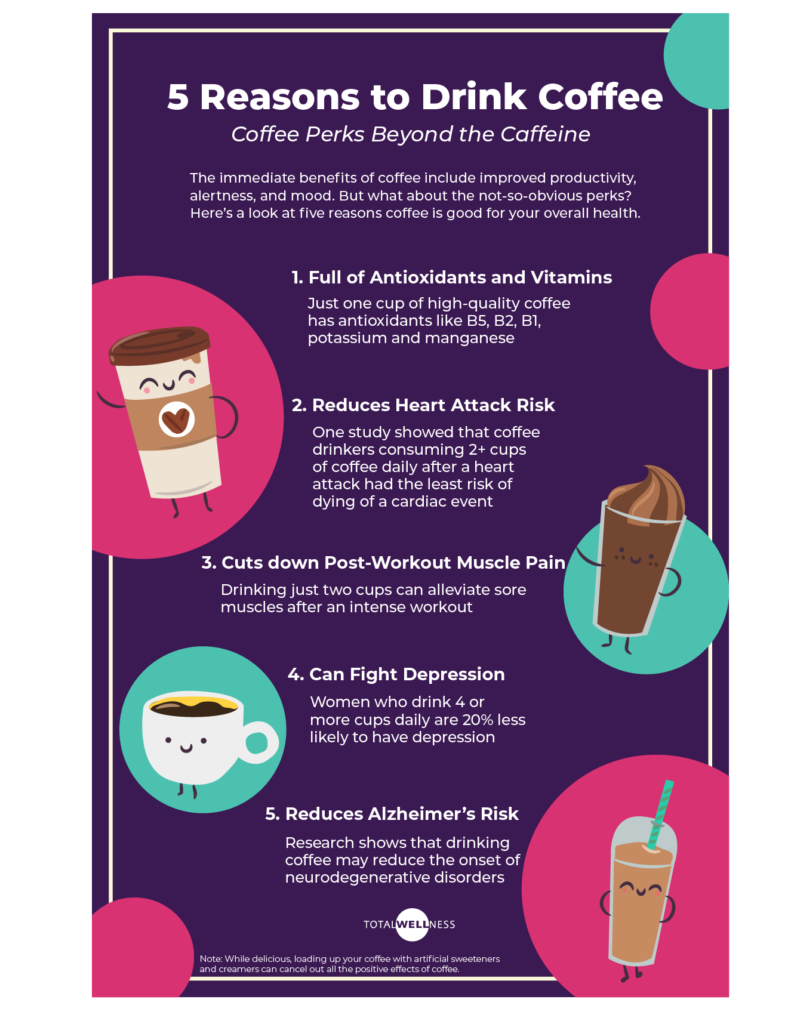
What is Caffeine?
Caffeine is a natural stimulant found in a variety of plants, including coffee beans, tea leaves, and cacao pods. It works by stimulating your central nervous system, heart, muscles, and the centers that control blood pressure. Because of its stimulating effects, caffeine is commonly consumed in beverages like coffee, tea, and energy drinks, as well as in certain foods and medications.
How Does Caffeine Work?
When you consume caffeine, it enters your bloodstream and travels to various organs, including your brain. It blocks the action of adenosine, a neurotransmitter that relaxes the brain and makes you feel tired. By blocking adenosine, caffeine stimulates the release of other neurotransmitters like dopamine and norepinephrine, which enhance alertness, focus, and energy levels.
The Positive Effects of Caffeine
Caffeine has more to offer than just a morning pick-me-up. Here are five positive effects of caffeine on your health and well-being.
1. Enhanced Cognitive Function
One of the most well-known benefits of caffeine is its ability to improve cognitive function. This includes better concentration, faster reaction times, and improved memory. Caffeine works by stimulating the areas of your brain responsible for alertness and thought processes.
Table: Cognitive Improvements Attributed to Caffeine
| Cognitive Function | Improvement |
|---|---|
| Concentration | Improved focus and attention |
| Reaction Time | Faster responses |
| Memory | Enhanced short-term memory |
| Mood | Increased sense of well-being |
2. Physical Performance
Caffeine isn’t just good for your brain; it’s also beneficial for your body. Many athletes and fitness enthusiasts use caffeine to enhance their physical performance. It helps in increasing adrenaline levels, which can improve endurance and reduce the perception of effort.
3. Weight Management
Caffeine has been shown to assist with weight management. It stimulates thermogenesis, the process of heat production in the body, which leads to increased energy expenditure. Additionally, caffeine can suppress appetite, making it easier to control food intake.
4. Antioxidant Properties
Caffeine is rich in antioxidants, which are compounds that protect your cells from damage by harmful molecules called free radicals. These antioxidants can help to reduce inflammation and protect against chronic diseases like heart disease and cancer.
5. Reduced Risk of Certain Diseases
Research suggests that moderate caffeine consumption may be linked to a lower risk of several diseases, including:
- Parkinson’s Disease: Studies indicate that caffeine may reduce the risk of developing Parkinson’s disease.
- Alzheimer’s Disease: Caffeine appears to offer some protective benefits against Alzheimer’s disease.
- Type 2 Diabetes: Regular caffeine intake has been associated with a reduced risk of developing type 2 diabetes.
- Stroke: Some studies suggest that caffeine could lower the risk of stroke in women.
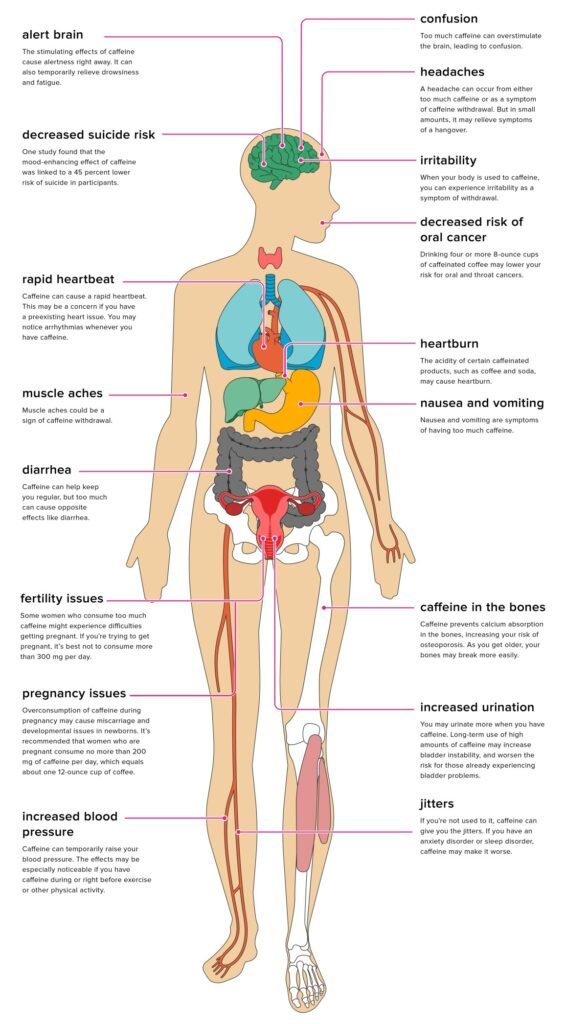
How Much Caffeine is Beneficial?
While moderate caffeine consumption offers various benefits, it’s essential to stay within recommended limits. Generally, up to 400 milligrams of caffeine per day is considered safe for most adults. This is roughly equivalent to four 8-ounce cups of brewed coffee.
Table: Caffeine Content in Popular Beverages
| Beverage | Caffeine Content (mg) | Serving Size |
|---|---|---|
| Brewed Coffee | 95 | 8 ounces (240 ml) |
| Espresso | 64 | 1 ounce (30 ml) |
| Black Tea | 47 | 8 ounces (240 ml) |
| Green Tea | 28 | 8 ounces (240 ml) |
| Energy Drink | 80 | 8 ounces (240 ml) |
| Soft Drink (Cola) | 30 | 12 ounces (355 ml) |
| Dark Chocolate | 12 | 1 ounce (28 grams) |
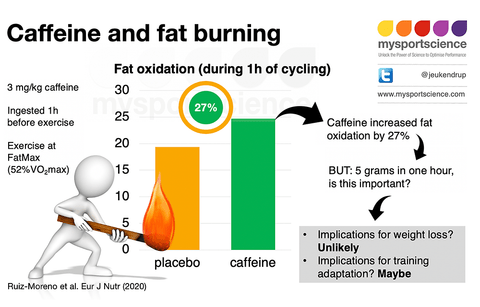
Potential Side Effects
Although caffeine has numerous positive effects, consuming too much can lead to negative side effects. These may include:
- Insomnia: High caffeine intake can interfere with your sleep.
- Anxiety: Excessive caffeine can increase heart rate and lead to feelings of anxiety.
- Digestive Issues: Some people experience stomach discomfort or acid reflux.
- Dependence: Regular consumption can lead to dependence and withdrawal symptoms.
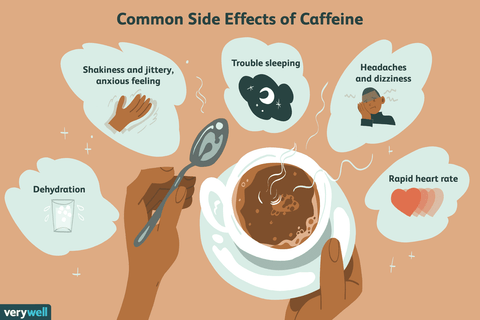
How to Enjoy Caffeine Responsibly
To maximize the benefits of caffeine while minimizing potential side effects, consider these tips:
- Moderation: Stick to moderate amounts, ideally not exceeding 400 mg per day.
- Timing: Avoid caffeine late in the day to prevent sleep disturbances.
- Listen to Your Body: Pay attention to how your body reacts to caffeine. If you experience negative effects, consider reducing your intake.
- Balance: Combine caffeine consumption with other healthy habits, like a balanced diet and regular exercise.
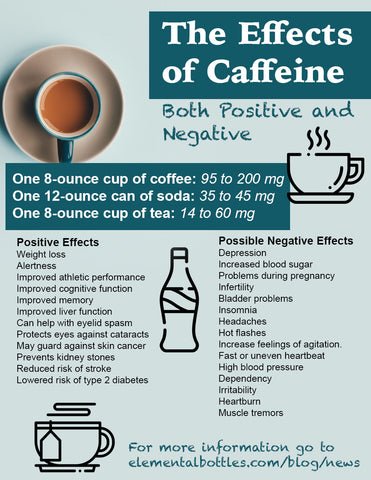
Conclusion
Caffeine is a powerful natural stimulant that offers numerous benefits for both your mind and body. From enhanced cognitive function and physical performance to weight management and protection against certain diseases, moderate caffeine consumption can positively impact your health and well-being. By consuming caffeine responsibly and paying attention to your body’s signals, you can make the most of its positive effects. So, next time you sip on your favorite caffeinated beverage, you’ll know just how much good it’s doing for you.
